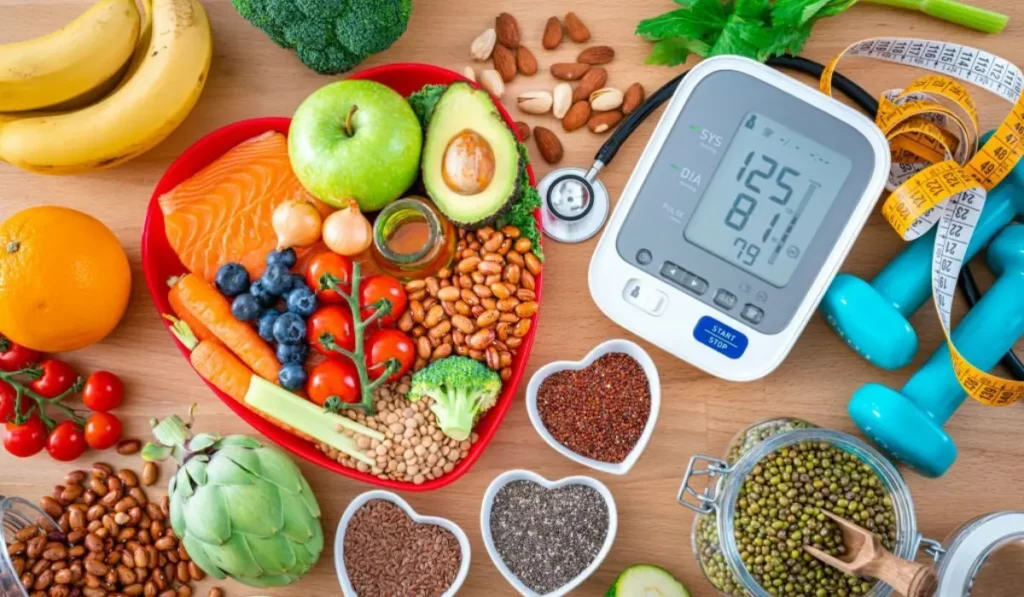Having a healthy cardiovascular system is crucial for overall health and well-being. The cardiovascular system includes the heart, blood vessels, and blood.
Maintaining good cardiovascular health helps prevent heart disease, stroke, and other cardiovascular conditions. There are several ways you can improve your cardiovascular health through lifestyle changes and adopting healthy habits.
5 Ways To Take Care Of Your Heart

Body Exercise Regularly
One of the most important things you can do for your cardiovascular health is to exercise regularly. Getting physical activity strengthens your heart muscle, improves blood circulation, and helps manage conditions like high blood pressure and high cholesterol that strain the cardiovascular system. Health experts recommend getting at least 150 minutes of moderate exercise like brisk walking or 75 minutes of vigorous exercise like running every week. Mix up cardio, strength training, and flexibility exercises.
Eat A Nutritious Diet
What you eat significantly impacts heart health. Eat a diet focused on whole, unprocessed foods like fruits, vegetables, whole grains, lean proteins, and healthy fats. Limit saturated and trans fats, sodium, added sugars, and refined carbohydrates. Eat plenty of fiber-rich foods to help lower cholesterol. Stay hydrated by drinking water. Avoid excess alcohol. Manage portion sizes and calories.
Quit Smoking
Smoking cigarettes is one of the worst things you can do for your cardiovascular system. Smoking damages blood vessels, raises blood pressure, and makes blood more likely to clot. Quitting smoking reduces these risks and improves cardiovascular health.
Manage Stress
Chronic stress takes a toll on the cardiovascular system by raising blood pressure and contributing to unhealthy coping behaviors. Make stress management a priority by practicing relaxation techniques like meditation, getting enough sleep, staying socially connected, pursuing hobbies, and talking to a therapist if needed.
Get Preventive Care
See your doctor regularly and follow preventive care guidelines to maintain cardiovascular health. Blood pressure, cholesterol, and glucose screenings can identify issues to address early. Certain vaccinations help prevent infections that could damage the cardiovascular system. Discuss any family history of cardiovascular disease with your doctor.
Conclusion
The steps outlined above can make a big difference in improving cardiovascular health. Focus on getting regular physical activity, eating better, managing stress, getting preventive care, and not smoking.
Paying attention to your cardiovascular health now yields huge benefits over the long term and can help prevent many common heart and blood vessel diseases.
FAQ
Here are some frequently asked questions about improving cardiovascular health:
Health experts recommend getting at least 150 minutes per week of moderate exercise like brisk walking or 75 minutes per week of vigorous exercise like running. Aim for 30-60 minutes most days.
Some of the best foods for heart health include fruits, vegetables, whole grains, nuts, legumes, fatty fish, olive oil, and other healthy fats. Limit saturated fats, trans fats, sodium, added sugars, and processed foods.
Pay attention to symptoms like chest pain, tightness or pressure, pain in the jaw, neck, or arms, lightheadedness, cold sweats, edema, abnormal heartbeat, fatigue, and shortness of breath. Contact your doctor if these occur. Regular screenings also help detect issues early.
Practice relaxation techniques like meditation, yoga, deep breathing, and mindfulness. Make time for hobbies and social connections. Get enough sleep. Avoid unhealthy coping mechanisms like smoking, excessive drinking, or overeating. Consider therapy for chronic stress.
Important screenings include blood pressure checks, cholesterol levels, blood glucose, body mass index, and waist circumference. Your doctor may also recommend an electrocardiogram, stress test, ankle-brachial index test, or advanced imaging.

